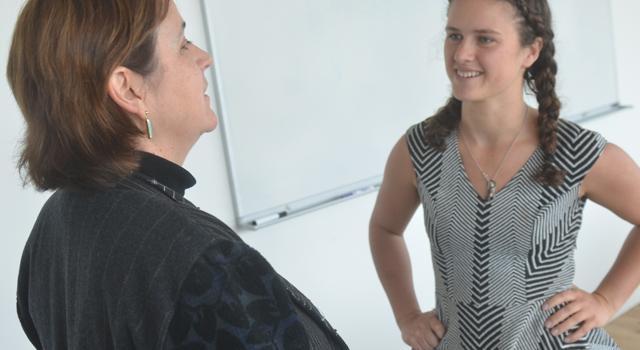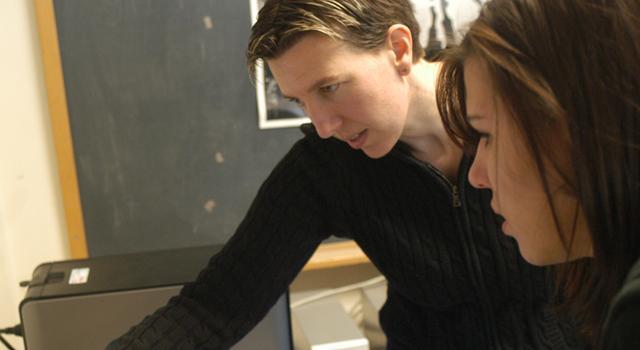Sociology
They will become well versed in the processes of continually changing social and cultural formations and their implications for people's lives.
Courses often emphasize comparative, historical, and interdisciplinary approaches, and consider class, race, and gender to be key categories of social analysis. Sociology is approached from the perspective of individual and collective identity, social and cultural institutions, and political economy. Such topics include education, gender studies, American history, health, and law.
Student Project Titles
- Cultural Citizenship in Transnational Spaces
- Musical Communities and Gentrification in Washington D.C.
- Beyond Barriers: Power, Risk, and HIV Prevention
- Two Projects in Documentary Practice
- (Un)Productive Bodies: Hysteria and Progress at the Fin de Siecle
- Rebuilding New Orleans: Studies in City Planning
- Identifying Deviance: The Politics of Illicit Substance Use Screening in Pregnancy
Sample First-Year Course
Empires & Citizenship: Post-Coloniality and Puerto Rican Communities
Drawing from a wide array of disciplinary perspectives, including sociology, history, political science, cultural studies and literature, this seminar will analyze Puerto Rico and its Diaspora in a global context. Starting with the Spanish conquest, moving through the U.S. invasion and the mass migration of Puerto Ricans after World War II into the U.S., we will examine how the scattered Puerto Rican nation developed in relation to European and U.S. expansion. We will begin with the emergence of the transoceanic movement of peoples and commodities to examine how ordinary Puerto Ricans became involved in the global economy and how their social and historical experiences overlapped with other racialized/colonized communities during the nineteenth and twentieth centuries. We will also consider how local and global processes shaped social movements, anti-colonial struggles, transnational initiatives, Diaspora narratives, and cultural/aesthetic agency.
Sample Courses at Hampshire
- The Biology and Sociology of Sports
- Children and their Cultural Worlds
- Civil Society and the State
- The Crafted City: Art, Urban Regeneration and the New Cultural Economy
- Creating Families
- Empires and Citizenship: Post-Coloniality & Puerto Rican Communities
- Ethnic Conflict: History and Memory in Post-Soviet Eurasia
- Family, Gender, Power
- Gender, Race, and Class
- Identity Beyond Identity Politics
- Making Community: Meanings and Methods
- Music and Ritual
- Producing Youth Culture
- The Rise of Secular Jewish Culture
- The Strange Career of Race in the U.S.
- Theorizing Religion
Through the Consortium
- Class & Society (SC)
- Corporate Crime (UMass)
- Crime & Deviance (MHC)
- Evaluating Behavior (SC)
- The Family (UMass)
- Human Diversity (AC)
- Social Problems (UMass)
- Sociological Theory (AC)
- Sociology of Family (MHC)
- Sociology of Love (UMass)
Facilities and Resources
Collective Power for Reproductive Justice
Founded in 1981, Collective Power for Reproductive Justice (formerly the Civil Liberties and Public Policy Program) was created to train and inspire new generations of reproductive rights activists and leaders. Collective Power for Reproductive Justice activity expands the definition of reproductive rights to include social and economic justice, civil liberties, LGBTQ rights, access to health care, youth empowerment, and other related social change issues. The CLPP program includes courses and lectures, the annual activist Reproductive Rights Conference, the national campus newsletter, National Day of Action, New Leadership Networking Initiative, and the Reproductive Rights Activist Service Corps which places students at reproductive rights and related grassroots, national, and international social change organizations.



